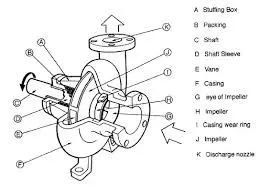Mobile:+86-311-808-126-83
Email:info@ydcastings.com
die cast aluminum castings
Die Cast Aluminum Castings An Overview
Die casting is a popular manufacturing process that involves forcing molten metal into a mold cavity at high pressure. Among the various metals that can be cast, aluminum is one of the most favored due to its unique properties. Die cast aluminum castings are widely recognized for their durability, lightweight, and ability to produce complex shapes with high precision.
One of the primary advantages of using aluminum for die casting is its excellent strength-to-weight ratio. This characteristic is particularly beneficial in industries such as automotive and aerospace, where reducing weight can lead to improved fuel efficiency and overall performance. Aluminum castings also offer good corrosion resistance, making them ideal for applications in which parts will be exposed to harsh environments.
The die casting process itself begins with the preparation of the aluminum alloy, which is typically melted in a furnace. Once molten, the aluminum is injected into a steel mold under high pressure. This rapid cooling process allows manufacturers to achieve detailed features and smooth surfaces in the finished product. The molds used in die casting are robust and can be reused for thousands of cycles, contributing to cost efficiency in high-volume production.
die cast aluminum castings

In terms of manufacturing flexibility, die cast aluminum allows for the integration of multiple components into a single casting. This capability not only simplifies assembly but also reduces the number of parts that need to be stored and managed. Additionally, this process opens up design possibilities, enabling engineers to create intricate designs that meet specific functional requirements.
Die cast aluminum castings are also highly recyclable. With increasing global emphasis on sustainability, the ability to recycle aluminum reduces waste and supports environmental conservation efforts. The recycling process for aluminum is energy-efficient compared to the production of new aluminum from raw materials, further enhancing its sustainability credentials.
The applications of die cast aluminum castings are vast and varied. They are used in the manufacturing of automotive parts, such as engine blocks, transmission cases, and complex housings. In the electronics industry, aluminum castings serve as enclosures and heat sinks due to their efficient thermal conductivity. They are also used in consumer goods and industrial equipment, showcasing the versatility of this manufacturing technique.
In conclusion, die cast aluminum castings have established themselves as a cornerstone in modern manufacturing due to their lightweight properties, durability, and cost-effective production methods. As industries continue to prioritize both performance and sustainability, the demand for aluminum castings is likely to grow, making it an essential aspect of contemporary engineering and design. As technology evolves, innovations in die casting processes will further enhance the capabilities and applications of aluminum castings, paving the way for future advancements in various sectors.
-
Understanding Metal Casting TechniquesNewsApr.02,2025
-
Understanding Exhaust Manifolds for Enhanced Engine PerformanceNewsApr.02,2025
-
The World of Metal FabricationNewsApr.02,2025
-
Key Components for Pump and Turbo EfficiencyNewsApr.02,2025
-
Essential Tools for Automotive Maintenance and RepairNewsApr.02,2025
-
Durable Valve Components for Effective Water ManagementNewsApr.02,2025











